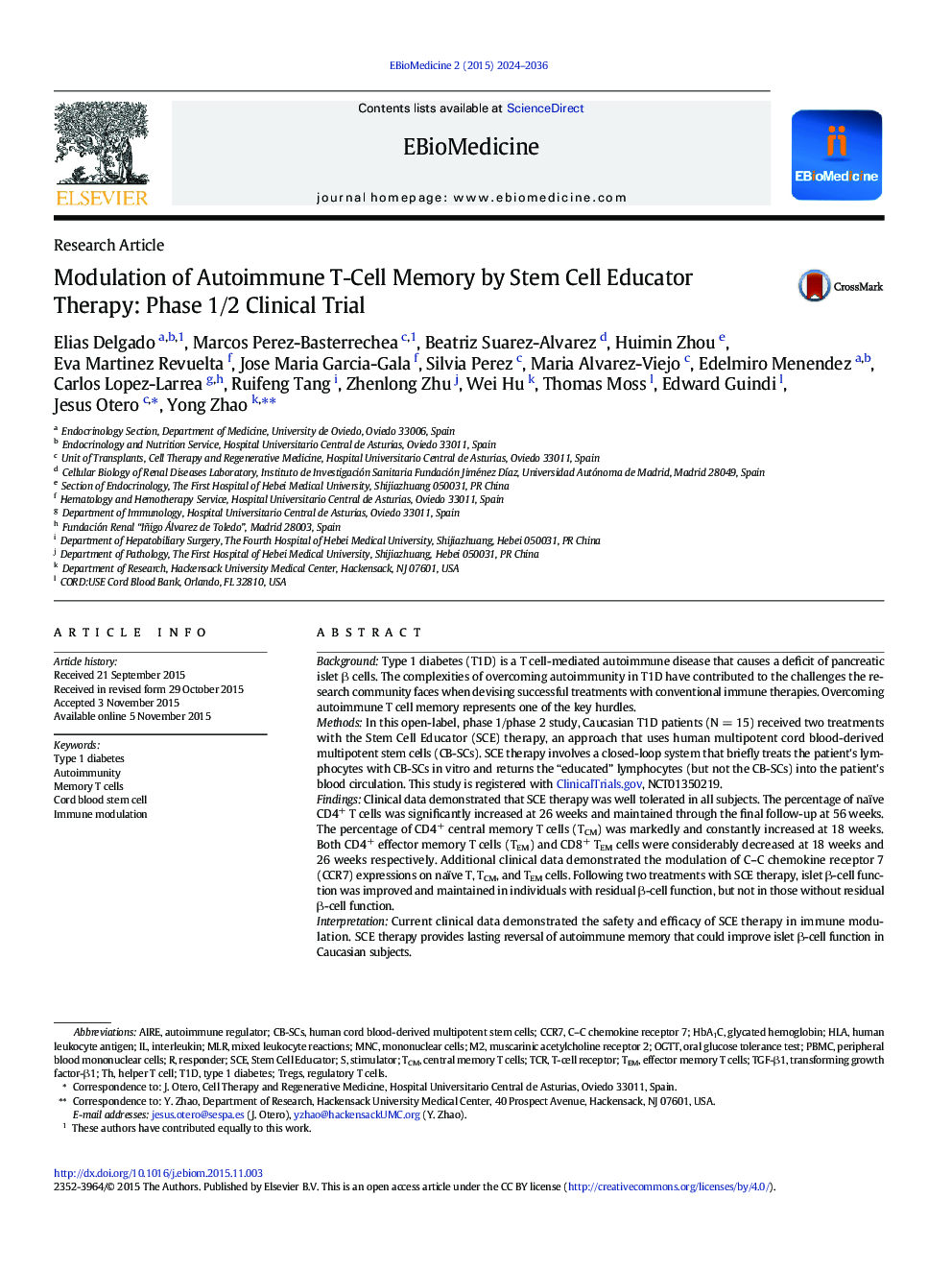| کد مقاله | کد نشریه | سال انتشار | مقاله انگلیسی | نسخه تمام متن |
|---|---|---|---|---|
| 2121083 | 1085768 | 2015 | 13 صفحه PDF | دانلود رایگان |

• We prove the safety and feasibility of a two-treatment approach with SCE therapy.
• The percentage of naïve CD4+ and TCM cells were increased, but the percentage of CD4+ TEM and CD8+ TEM cells were declined.
• The expression of CCR7 on naïve T and TCM cells were markedly increased.The current studies demonstrated the safety and feasibility of a two-treatment approach with Stem Cell Educator therapy and well tolerated in all subjects, without significantly changing the numbers and ratios of different cell compartments in the subjects' immune system. Both the percentage of CD4+ and CD8+ effector memory T cells were substantially decreased in the peripheral blood of T1D subjects, whereas the percentage of CD4+ central memory T cells was markedly and constantly increased. These findings provide a solution to alter the autoimmune memory compartment in T1D, while mitigating safety and ethical concerns associated with conventional immune therapies.
BackgroundType 1 diabetes (T1D) is a T cell-mediated autoimmune disease that causes a deficit of pancreatic islet β cells. The complexities of overcoming autoimmunity in T1D have contributed to the challenges the research community faces when devising successful treatments with conventional immune therapies. Overcoming autoimmune T cell memory represents one of the key hurdles.MethodsIn this open-label, phase 1/phase 2 study, Caucasian T1D patients (N = 15) received two treatments with the Stem Cell Educator (SCE) therapy, an approach that uses human multipotent cord blood-derived multipotent stem cells (CB-SCs). SCE therapy involves a closed-loop system that briefly treats the patient's lymphocytes with CB-SCs in vitro and returns the “educated” lymphocytes (but not the CB-SCs) into the patient's blood circulation. This study is registered with ClinicalTrials.gov, NCT01350219.FindingsClinical data demonstrated that SCE therapy was well tolerated in all subjects. The percentage of naïve CD4+ T cells was significantly increased at 26 weeks and maintained through the final follow-up at 56 weeks. The percentage of CD4+ central memory T cells (TCM) was markedly and constantly increased at 18 weeks. Both CD4+ effector memory T cells (TEM) and CD8+ TEM cells were considerably decreased at 18 weeks and 26 weeks respectively. Additional clinical data demonstrated the modulation of C–C chemokine receptor 7 (CCR7) expressions on naïve T, TCM, and TEM cells. Following two treatments with SCE therapy, islet β-cell function was improved and maintained in individuals with residual β-cell function, but not in those without residual β-cell function.InterpretationCurrent clinical data demonstrated the safety and efficacy of SCE therapy in immune modulation. SCE therapy provides lasting reversal of autoimmune memory that could improve islet β-cell function in Caucasian subjects.FundingObra Social “La Caixa”, Instituto de Salud Carlos III, Red de Investigación Renal, European Union FEDER Funds, Principado de Asturias, FICYT, and Hackensack University Medical Center Foundation.
Journal: EBioMedicine - Volume 2, Issue 12, December 2015, Pages 2024–2036